|
After clicking 'Play', please wait a few moments for the podcast to load. You can also listen on Spotify, Apple, Google, Podomatic, Player FM and Deezer. Listen to other Forecasts here. Poet and writing teacher Carl Winderl shares one of his newest poems and the relationship between his faith and writing. Then Josh gives a brief update on the emerging identity of Foreshadow. This is the second part of two episodes, the first of which you can find here. Host: Josh Seligman Link to Carl's book: The Gospel According . . . to Mary (Finishing Line Press, 2021) Below are excerpts from today's Forecast about Carl's faith and work. This transcript has been lightly edited for clarity and concision. Seeing literally and figuratively The poet begins with the basic premise that he's going to see things literally and figuratively. When I would teach poetry classes, on the very first day of the class, I would let students know that I can teach you how to write poetry, but I cannot teach you to be a poet. There's a big difference there. In the follow-up, I would say, if you're going to be a poet, that's up to you. You've either got it in you, or you're going to figure out a way to make it happen. When I would see students writing or read other poets, I would understand that they are able to take something that is literal and see it figuratively as well. That's what the power of a simile or a metaphor is. It says something is like something else, or it says something is something else. 'Someone is as swift as a deer' is a simile...It's an engagement that's inviting the listener or reader to make those leaps. I think that's what makes poetry somewhat difficult to understand. The poet expects them to 'Hey, take a leap with me.' We all know what it means to smell literally, but what about smelling figuratively? [In my poem,] what Mary implies is that the original smell from Lazarus' tomb is repulsive, it's repugnant, it's offensive. But when Jesus arises, the scent is beautiful. All of the frankincense and myrrh and cassia and aloe. I'm a poet, and I love this. Those are the same ointments that they put on his body when he was a baby. People will say to me, 'What's your favourite book?' And I say, 'It's the Bible'. They say, 'Oh no, you have to say that because you taught at a Christian university'. I'm like, 'No. That's the way it is because there's so much flashbacking and foreshadowing.'...How can you not love the Bible when you see things like that? St Augustine said, 'The New Testament is concealed in the Old Testament, but the Old Testament is revealed in the New Testament.' And it's this concealing/revealing that helps me understand and makes me look for these opportunities. That's how my faith is strengthened. For me, faith is intellectual. It's a rational thing. I can decide to follow Christ because I believe in what he says and what he's done and what he does. My faith is an intellectual exercise. When I see things like this, when I see these overlaps, when I see the foreshadowing and the flashbacking, when I see that Abraham and Isaac and the sacrifice there foreshadows what God is going to do with his Son Jesus, and that we have the same notion that he's the Lamb of God, we have the same notion that Abraham saves Isaac's life because he sees another sheep in the thicket and he sacrifices it instead of his son, that kind of juxtaposition makes me go, 'How can I not want to read the book, how can I not want to believe these stories?' I think part of what I've tried to do is to help people see that kind of insight as well. Maybe that's what The Gospel According . . . to Mary is all about, helping people to see the things that I see, and to see them literally and figuratively. Like in this poem, how something smelling so bad can end up smelling so good. And you know what? That's Jesus. That's God. He does that with all of our lives. He takes what we are and makes something beautiful out of what we can be, could be, should be. Carl Winderl holds a Ph.D. in Creative Writing from New York University and maintains a home in San Diego, California.
Carl's other work on Foreshadow: At Judas' funeral (Poetry, March 2021) A Writer Is Always at Work (Part 1 of 2) (Interview, May 2021) Josh Seligman is the editor of Foreshadow. You can read his update on Foreshadow's emerging identity here.
0 Comments
By Josh Seligman This month marks half a year of Foreshadow’s existence as an online literary magazine. I want to take this occasion to update you on Foreshadow’s emerging identity. I identify three qualities that the magazine aspires towards:
Please do get in touch if you have any questions or comments. Thank you for reading, listening and supporting. With your help, I look forward to seeing what the future has in store. Josh Seligman is the founding editor of Foreshadow and co-host of its podcast, Forecast.
'I See His Blood upon the Rose' by Joseph Plunkett I see his blood upon the rose And in the stars the glory of his eyes, His body gleams amid eternal snows, His tears fall from the skies. I see his face in every flower; The thunder and the singing of the birds Are but his voice—and carven by his power Rocks are his written words. All pathways by his feet are worn, His strong heart stirs the ever-beating sea, His crown of thorns is twined with every thorn, His cross is every tree. Joseph Plunkett (1887–1916) was an Irish writer.
By Emma McCoy The covenant splits a river like the Red Sea. Have I not commanded you? Do not be afraid; go! Walk on dry ground and look upstream. You were slaves in Egypt and I set you free. I gave you land even as I was betrayed but the covenant still splits a river like the Red Sea. My Promised Land is what life should be. You people of lament, a nation waylaid, must go! Walk on dry ground and look upstream for the courageous are rooted in me. Your season of loss is over: my love is displayed in a covenant that splits a river like the Red Sea. You are a stiff-necked people. I have seen you wait to cross the Jordan decade upon decade -- now go! Walk on dry ground and look upstream. I have performed wonders you can’t conceive, yet you are a people of doubt, a nation remade through my covenant that splits a river like the Red Sea. So go! Walk on dry ground and look upstream. Emma McCoy is a literature student at Point Loma Nazarene University, California. Much of her poetry explores biblical narratives through re-imagination, closed forms and a close look at the structures and imagery of the original stories. When she's not writing, she spends her time outdoors chasing the downhill -- either skiing or mountain-biking.
Emma's poem the third movement of Genesis appeared in Foreshadow in January 2021. 'The Tide River' by Charles Kingsley Clear and cool, clear and cool, By laughing shallow and dreaming pool; Cool and clear, cool and clear, By shining shingle and foaming weir; Under the crag where the ouzel sings, And the ivied wall where the church-bell rings, Undefiled, for the undefiled; Play by me, bathe in me, mother and child. Dank and foul, dank and foul, By the smoky town in its murky cowl; Foul and dank, foul and dank, By wharf and sewer and slimy bank; Darker and darker the farther I go, Baser and baser the richer I grow; Who dare sport with the sin-defiled? Shrink from me, turn from me, mother and child. Strong and free, strong and free, The flood-gates are open, away to the sea. Free and strong, free and strong, Cleansing my streams as I hurry along, To the golden sands, and the leaping bar, And the taintless tide that awaits me afar. As I lose myself in the infinite main, Like a soul that has sinned and is pardoned again, Undefiled, for the undefiled; Play by me, bathe in me, mother and child. Charles Kingsley (1819–1875) was a poet and an Anglican priest.
After clicking 'Play', please wait a few moments for the podcast to load. You can also listen on Spotify, Apple, Google, Podomatic, Player FM and Deezer. Listen to other Forecasts here. Seth Little, director of worship arts at All Angels' Episcopal Church in New York City, describes how worship music can unite people of diverse backgrounds. He witnesses to the presence of mystery in worship and both the challenges and joys of his ministry amid the US racial reckoning and a global pandemic. Host: Will Shine Link: All Angels' Church Below are excerpts from today's Forecast about Seth's ministry. This transcript has been lightly edited for clarity and concision. The blessing of discomfort At All Angels, I started playing these fairly standard gospel tunes that I'd heard...but I struggled to feel like I was worshiping. I realised that my cultural assumption is that worship feels different than this. And yet I can think of my friend...who's a black man who grew up in a black church that sings a different repertoire of music, probably much more like what I'm singing now, and he's like, 'I just can't get into this music' at the church where we were singing all this other stuff that I think is more of a white, contemporary charismatic cultural default. These are cultural conflicts. So I've thought there's much to probe there in a local congregation, and here at All Angels, I think we're poised to explore that some...I think 'probe' is probably an accurate word, whether it's a medical probe or a probe into deep space. It's uncomfortable and risky and awkward. But it's exploring the edges. I actually think there's something about discomfort that may be more authentic to the inbreaking kingdom of God than comfort. There's something about being on the edge in these liminal spaces that feels a lot more organic to the life of faith. Mystery and unity There's mystery involved in music, ontologically speaking. In all the arts, the aesthetic dimension extends beyond our rational faculties can grasp. And yet it's essential. We need that. We need to engage with beauty and with emotion and raw interaction with aesthetics in a way that isn't satisfied with criticism but moves into contemplation...we need a healthy dose of mystery, of humility, to understand that we cannot get our heads around all of life and all that there is. The ontology of things ultimately is beyond our grasp. Being belongs to God. So I think music itself transcends our understanding. One of the reasons we sing together is because it's more than we can understand in its power, which points to all kinds of mysteries in life that's really healthy. But I also think of music as community-making all the time, literally bridging divides. So we can have a room together of people that have all kinds of different backgrounds: homed and homeless, people that live uptown and downtown in the boroughs, people that have incredible, powerful roles in society and people that are really not sure about their next meal, literate and illiterate side-by-side. And that literally happens in our church, which is really beautiful, really challenging when you look up close, but really beautiful. But we can sing together and are truly united in that song. Seth Little is Director of Worship Arts at All Angels' Church in New York City.
Related work on Foreshadow: Peacemaking through Song (Interview with September Penn) Will Shine is a co-host of Forecast. 'Christ Is the World's Redeemer' by St Columba (trans Duncan Macgregor) Christ is the world's Redeemer, the lover of the pure, the fount of heavenly wisdom, our trust and hope secure; the armour of his soldiers, the Lord of earth and sky; our health while we are living, our life when we shall die. Christ has our host surrounded with clouds of martyrs bright, who wave their palms in triumph and fire us for the fight. For Christ the cross ascended to save a world undone and, suffering for the sinful, our full redemption won. Down in the realm of darkness he lay a captive bound, but at the hour appointed, he rose, a victor crowned; and now, to heaven ascended, he sits upon the throne in glorious dominion, his Father's and his own. Glory to God the Father, the unbegotten One; all honour be to Jesus, his sole-begotten Son; and to the Holy Spirit -- the perfect Trinity. Let all the worlds give answer, 'Amen, so let it be'. David Roberts (1796–1864) was a Scottish painter.
St Columba (521–597) was an Irish abbot and missionary. Duncan Macgregor (1854–1923) was a Scottish minister and poet. By Nicholas Kotar It took Voran a maddening hour to get through the city's reaches and out the gates. Another half hour away from the paths as he tried to get his bearings in the forests beyond the city. He was intent on his path like a pointer on the scent. But when the howling started, his blood turned to ice in his veins. He had heard wolves before. This was no mere wolf. The sound was deeper and darker, like the buzz of a hornet compared to a fly. He tried to recall the details of the many stories of the white stag. Was there a legendary predator to accompany the legendary quarry? Not that he could remember. A blur of white raced before his eyes, so close he could spit at it. In an instant, it was gone. The sun showered the foliage with dappled light. Something that was not the sun – a strange golden mist-light – flickered through the trunks, as though the stag had left a trail of light behind it. The mist beckoned him deeper into the forest. Voran plunged headlong into the deepwood. The strange light continued before him for a mile or so, then blinked out. Voran looked around and realized he had never been in this place before. He stood on the edge of a clearing awash in the morning sun, so bright compared to the gloom of the woods that he could see nothing in it but white light. He stepped forward. The light overwhelmed him, forcing him to crouch over and shield his eyes. Fuzzy at first, then resolving as Voran's eyes grew accustomed to the light, the white stag towered in the middle of the clearing, almost man-high at the shoulder. Its antlers gleamed gold, so bright that they competed with the sun. Voran froze in place and adopted the deep, silent breathing pattern that an old woodsman taught him in childhood. Inch by inch, he reached for his bow. His quiver hung at his side in the Karilan manner, so taking the arrow would be the work of half a second, but extricating the bow strapped to his back was another matter. A single bead of sweat dropped from his forehead and slid down the side of his nose, tickling him. The deer turned its head to Voran, showing no inclination to flee. As though Voran were nothing more than a fly, it flicked both ears and continued to graze. The howl repeated, just to Voran's right. Out of the trees crept a black wolf the size of a bear, its fur glistening in the light of the antlers. It paid no heed to Voran, leading with bristling head toward the grazing deer. It lunged, blurring in Voran's vision like a war-spear, but the stag leaped over it and merely moved farther off to continue grazing. The wolf howled again and lunged again. Back and forth they danced, but the stag knew the steps of this death-dance better than the wolf. His nonchalance seemed to infuriate the hunter. The wolf charged so fast that Voran missed its attack. The deer flew higher than Voran thought possible, and its golden antlers slammed the wolf's flank like a barbed mace. The wolf screamed. The sound ripped through Voran, an almost physical pain. The stag trotted to the other end of the clearing. Looking back once more, it waited. Gooseflesh tickled Voran's neck. The stag called to him, teasing him to continue the hunt. Voran ran, and the deer launched off its back legs and flew into the waiting embrace of the trees. Voran stopped. His body strained forward, intent on the hunt, but his heart pulled back. The wolf. He could not leave a suffering creature to die, even if it was the size of a bear, even if it would probably try to kill him if he approached. With a groan for his lost quarry, Voran turned back. The wolf dragged itself forward with its forepaws. Each black claw was the size of a dagger. As Voran approached, its ears went flat against its head, and it growled deep in its throat. Voran's hands shook. Gritting his teeth, he balled his hands into fists and willed himself to look the wolf in the eye. Its ears went up like an inquisitive dog's. It whined. In the eyes of the wolf, Voran saw recognition. This was a reasoning creature, not a wild animal. "I can help you," he found himself saying to the wolf as to a human being. "If you let me." The wolf stared at him, then nodded twice. Voran pulled a homemade salve – one of Lebía's own making – from a pouch on his quiver. Tearing a strip from his linen shirt, he soaked it with the oils and cleaned the wound of tiny fragments of bone. The wolf tensed in pain, then exhaled and relaxed. Its eyes drooped as the pungent odor suffused the air, mingling with pine-scent. Soon the wolf was snoring. As Voran watched the sleeping wolf, something stirred in his chest – a sense of familiarity and comfort he had only felt on rainy evenings by the hearth. For a brief moment, the wolf was a brother, closer even than any human. Perhaps it was better that he had given up the chance to hunt the stag. This stillness was enough. A rustle of leaves distracted Voran. He turned around to see the white stag returning into the clearing with head bowed. Voran could not believe his good fortune. He would be the successful hunter. His family's dishonored name would be raised up again on Vasyllia's lips. Trembling, he reached for his bow. The stag stopped for a moment, as if considering. More boldly, he walked to Voran. Voran's heart raced at how easy this kill would be, but the excitement died when the stag didn't stop. He stared right at Voran as he strode. Voran pulled out an arrow and nocked it. The stag walked closer. No. He couldn't do it. This beast was too noble, his eyes too knowing. Killing him would be like killing a man in cold blood. The stag stopped close enough that Voran could touch him. To Voran's shock, he bowed his two forelegs and dipped his antlered crown to the earth, a king of beasts making obeisance to a youth of a mere twenty-four summers. Gathering courage, Voran approached the stag. His hands shook as he reached out to touch the antlers. Something shook the branches in the trees ahead. Voran looked up, shoulders tensed. Something, some sort of huge bird, much bigger than a mountain eagle, perched in the crown of an orange-leaved aspen. No, not a bird, something else. Then Voran understood, and terror and excitement fought inside him, leaving him open-mouthed and rooted to the ground. The creature had a woman's face and torso, seamlessly blending with the wings and eagle body. Her head was adorned in golden-brown curls, and each feather shone like a living gem. A Sirin. She opened her mouth and sang. It was his song, but he had never heard it like this. Voran no longer felt his body. It soared above the clouds; it plumbed the depths of the sea; it hovered on the wings of a kestrel. The song pinioned him like a spear to the earth, but raised him on a spring breeze above the world's confusion. He was once again in the arms of his mother as she nursed him, her breath a soft tickle. He was inside the sun, and its music weaved him into existence. The earth shuddered, and he knew that he could turn it inside out. The song of the Sirin stopped, and life lost all meaning. It was all grey, ugly, useless without her song. When he came back to himself, the stag, the wolf, the Sirin were all gone, though her song lingered on the air. It seemed he would never rest, never sleep until he found her again. Nicholas Kotar is an epic fantasy author and an Orthodox deacon. You can learn more about his writing, teaching and other work on his website.
The above excerpt comes from The Song of the Sirin (Raven Son: Book One), which is available for free as an ebook, as well as in audio and print formats (not free). The excerpt was published with permission from the author, who holds the copyright. 'By Night When Others Soundly Slept' by Anne Bradstreet 1 By night when others soundly slept And hath at once both ease and Rest, My waking eyes were open kept And so to lie I found it best. 2 I sought him whom my Soul did Love, With tears I sought him earnestly. He bow’d his ear down from Above. In vain I did not seek or cry. 3 My hungry Soul he fill’d with Good; He in his Bottle put my tears, My smarting wounds washt in his blood, And banisht thence my Doubts and fears. 4 What to my Saviour shall I give Who freely hath done this for me? I’ll serve him here whilst I shall live And Loue him to Eternity. Artur Grottger (1837–1867) was a Polish painter and graphic artist.
Anne Bradstreet (1612–1672) was a Puritan poet. |
Categories
All
ForecastSupport UsArchives
July 2024
|
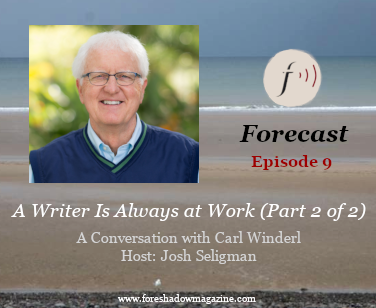
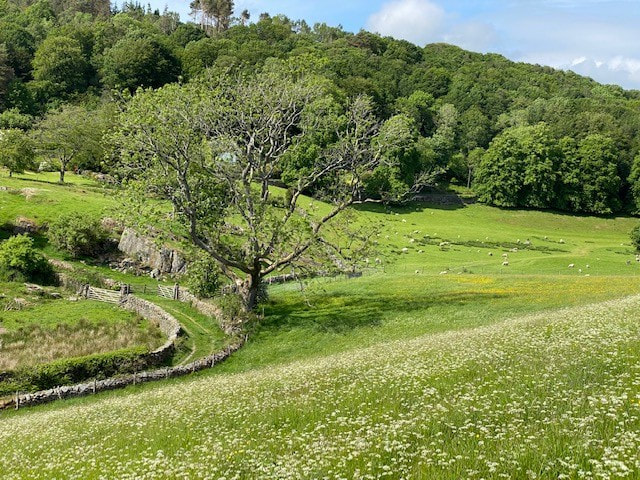

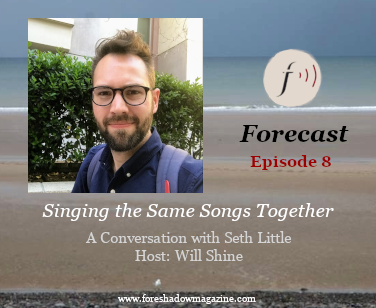
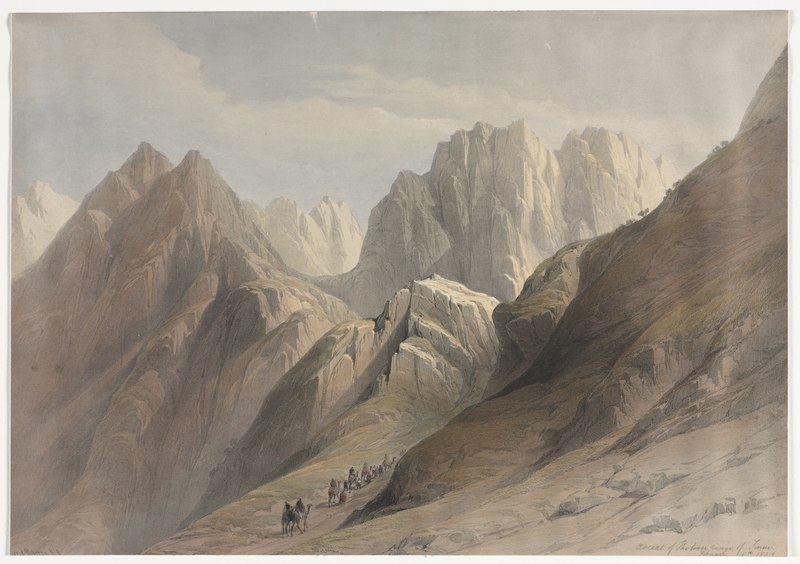
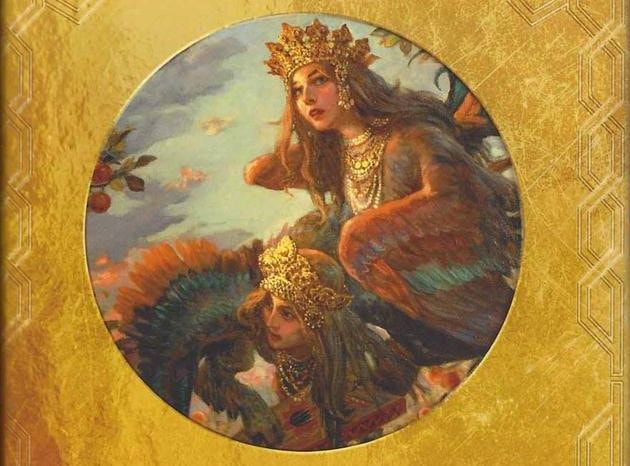
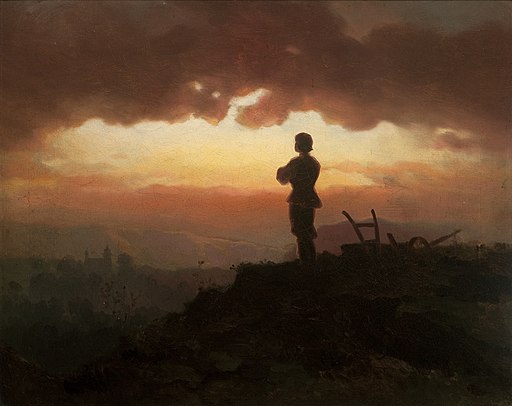
 RSS Feed
RSS Feed
